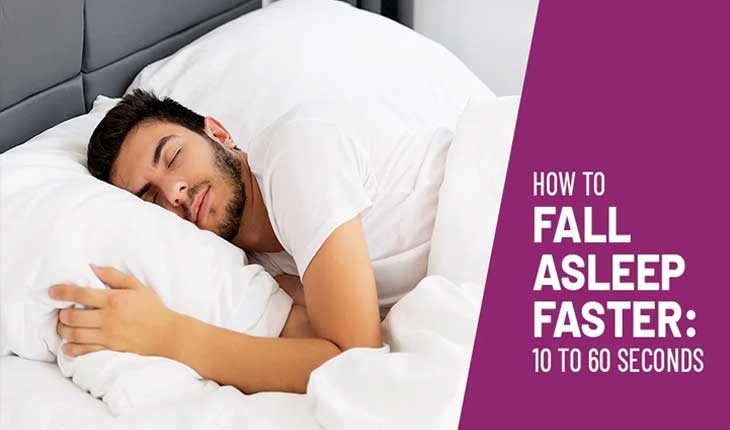Are you having trouble falling asleep at night? If so, you’re not alone. Difficulty in falling asleep, or insomnia, is a common problem affecting millions of people worldwide. Insufficient sleep can lead to decreased productivity, lack of focus, and various health issues. Luckily, there are several tips and techniques that can help you fall asleep fast. Here’s a comprehensive guide on how to do so.
- Establish a Sleep Routine Establishing a regular sleep routine is one of the best ways to train your body to fall asleep fast. Try to go to bed and wake up at the same time every day, including on weekends. Consistency helps regulate your body’s internal clock, making it easier to fall asleep and wake up naturally.
- Create a Relaxing Environment Creating a relaxing environment in your bedroom can help you fall asleep faster. Make sure your bedroom is quiet, cool, and dark. Use blackout curtains or an eye mask to block out any light, and use earplugs or white noise machines to minimize noise disruptions.
- Avoid Caffeine and Alcohol Caffeine is a stimulant that can keep you awake, so avoid caffeine-containing drinks like coffee, tea, and soda in the afternoon and evening. Similarly, while alcohol may initially make you feel sleepy, it can disrupt your sleep later in the night, leading to difficulty in falling and staying asleep.
- Limit Screen Time Blue light emitted from electronic devices such as laptops, smartphones, and tablets can interfere with the production of the sleep hormone melatonin, making it harder to fall asleep. Try to limit your screen time before bedtime or use blue light blocking glasses to reduce the impact of blue light on your sleep.
- Practice Relaxation Techniques Relaxation techniques, such as deep breathing, progressive muscle relaxation, and visualization, can help you relax and fall asleep fast. Spend 10-15 minutes before bedtime practicing these techniques to calm your mind and body.
- Keep a Sleep Diary Keeping a sleep diary can help you identify patterns and behaviors that may be interfering with your sleep. Record the time you go to bed and wake up, how long it takes you to fall asleep, and any factors that may have affected your sleep quality. Once you identify any patterns or factors that are negatively impacting your sleep, you can take steps to address them.
- Exercise Regularly Regular exercise can improve sleep quality and help you fall asleep faster. However, avoid exercising too close to bedtime as it can make you feel energized and awake.
- Improve Sleep Hygiene Good sleep hygiene habits can improve your overall sleep quality. These habits include avoiding large meals, caffeine, and alcohol before bedtime, creating a comfortable sleep environment, and avoiding naps during the day.
In conclusion, falling asleep fast is essential for a healthy and productive life. If you’re having difficulty falling asleep, try incorporating these tips and techniques into your bedtime routine. Establishing a regular sleep routine, creating a relaxing environment, avoiding caffeine and alcohol, limiting screen time, practicing relaxation techniques, keeping a sleep diary, exercising regularly, and improving your sleep hygiene can all help you fall asleep faster and wake up feeling refreshed. Remember that it may take time to establish new habits, so be patient and consistent in your

